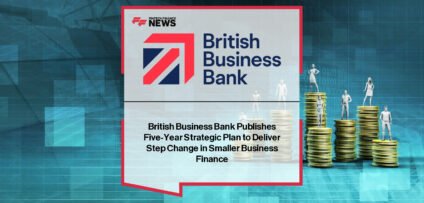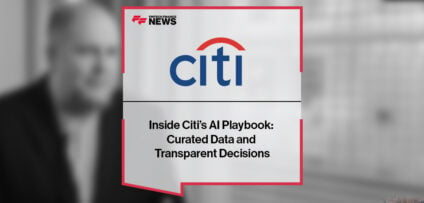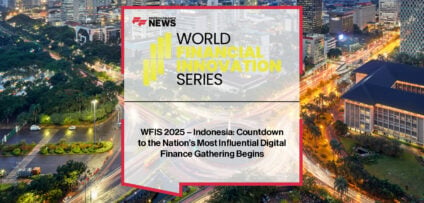Breaking News

Major Banks Give Helping Hand to People Experiencing Homelessness as New Financial Inclusion Strategy Launches
Thousands of people at risk of experiencing homelessness will be able to open bank accounts for the first time through a new pilot between Shelter and five major banks, which will allow Shelter to support people without a fixed address removing a major barrier which stops people being able to get paid work.
Lloyds, NatWest, Barclays, Nationwide and Santander are expanding on Shelter’s partnership with HSBC, which has already helped over 7,000 people get back on their feet.
For people without a fixed address, opening a bank account can feel impossible – yet without one, finding a job or a home is even harder. This new partnership removes those barriers and gives people a fair chance to rebuild their lives.
This support is also in addition to the new digital pass we’re developing which will give people a free and easy way to prove who they are.
The pilot is part of the new Financial Inclusion Strategy, launched today, which sets out a national plan to make financial services work for everyone, from people experiencing homelessness and survivors of abuse to families with no savings and children learning about money for the first time.
Economic Secretary to the Treasury Lucy Rigby said: This plan is about opening doors – helping people experiencing homelessness into work, helping survivors of abuse rebuild their credit, and helping families save for a rainy day.
No one should be locked out of the chance to build a better future. Our strategy gives people the tools to get on and boosts the economy by supporting more people back into work through our Plan for Change.
Lauren Thompson, Head of Corporate Partnerships at Shelter, said: Our Breaking the Cycle initiative is a vital step in providing essential financial support, housing advice, and resources to help people at risk of or experiencing homelessness.
Every day at Shelter, we see the crippling financial pressures often faced by those hit the hardest by the housing emergency. Many are skipping meals just to cover rent, cutting back on essentials, and making impossible choices simply to stay afloat. Access to banking can help people receive financial support, pay bills, and find and keep a safe home. Through our partnership with HSBC UK, pioneers in this space, we’ve supported over 7,000 people experiencing homelessness or housing difficulties to open a bank account. Breaking the Cycle can help support people to regain control, build financial resilience, and rebuild their lives.
Jose Carvalho, Head of Retail Banking and Wealth, HSBC UK said: We are proud to have supported the creation of the Financial Inclusion Strategy, which will help people and families across the UK build financial resilience.
We are committed to helping people and families improve their financial health. Through our partnership with Shelter and our No Fixed Address Account service, we have already supported thousands of people to gain access to banking services, helping them break the cycle of homelessness, build financial resilience, and rebuild their lives. This is a big step forward as the industry comes together to help as many people in need as possible.
The Strategy includes new work with credit agencies to help victims of domestic abuse repair credit records damaged by economic control – giving survivors a fair chance to rebuild their financial independence.
It will also provide support for employers to offer payroll savings schemes, helping the one in ten adults with no savings build a financial cushion for unexpected bills. These schemes have proved popular with workers, with their employers putting a percentage of their salary into a savings account.
At the moment, companies are reluctant to offer such schemes as they fear that it will mean they are not complying with their statutory obligations to the employee. We are providing them with the certainty they need through the Strategy to roll out such schemes far and wide.
The Strategy also strengthens financial education in schools, giving every primary school child the tools to understand money and make confident financial decisions for the future.
This Financial Inclusion Strategy is part of a bigger effort to help people through the cost-of-living squeeze. Thirty hours of free childcare saving families £7,000 a year. Free breakfast clubs and more school meals for children on Universal Credit. Five million extra NHS appointments and real wages finally rising again.
In addition, to keep access to banking open for all, the government is backing the rollout of 350 new banking hubs by the end of this Parliament – restoring face-to-face services in towns that have lost their last branch, with ministers set to open the 200th hub later this year.
Sam Smethers, Chief Executive Officer, Surviving Economic Abuse, said: For far too long, domestic abusers have stolen victim-survivors’ futures – forcing them into debt and destroying their credit scores with life-shattering consequences. This strategy provides a golden opportunity to help survivors rebuild their lives by restoring their credit scores. It’s one we must seize so that credit reports reflect victim-survivors’ creditworthiness, not the economic abuse they have experienced.
No survivor should be left paying the price for an abuser’s crimes. We look forward to working with the government and the financial services sector to ensure survivors’ experiences remain at the forefront of implementing credit restoration measures, with clear accountability for delivery. Together, we will help survivors safely rebuild their lives free from economic abuse.
David Postings, Chief Executive of UK Finance said: Being able to prove who you are should never be a barrier to rebuilding your life. That’s why we have worked with our members to make it easier for people without a fixed address to open a bank account. This partnership with Shelter and the major account providers is a vital step in ensuring that everyone – including those facing homelessness – can access the financial system, find work, and move forward with independence.
Jas Singh, CEO, Consumer Relationships at Lloyds Banking Group Digital and financial exclusion aren’t peripheral issues – they can be significant barriers to feeling part of society and supporting people to feel included and empowered is crucial. This is a massive step forward to improve access to banking for those who need it most, improving digital capability and confidence and helping people to build a stronger financial future.
Kris Foster, Co-Founder, Project Nemo “People used to speak for me, about me, and in front of me as though I didn’t have anything to say.
Joanne Dewar and I founded Project Nemo in 2024 to address digital inaccessibility and the under-representation of disabled people in financial services. I now have an equal seat at the table, helping shape conversations about pe
ople like me, ensuring our needs are fully understood and the future of financial services works for everyone. “The publication of the Financial Inclusion Strategy today, which includes a case study on Project Nemo, shows that the government and wider industry are sitting up and listening to our needs. Now, we need more than listening – we need action.”
“Through the Project Nemo inclusive design workshops, facilitated by CI&T, myself and others with lived experience, we co-created a proof-of-concept app that delivers better money management and payments for adults with additional needs. It can be tailored to different user requirements and preferences and includes a calm mode for help at the check out, which can be really stressful. I know the payments experience can be better for everyone and I am determined to make this possible.”
Joanne Dewar, Co-Founder, Project Nemo “With the government launching the Financial Inclusion Strategy today, I’m pleased to see a focus on the need to address digital inaccessibility across financial services. Our Project Nemo case study outlined within the strategy highlights that when we embrace inclusive design, working with rather than on behalf of the community, we create solutions that empower everyone.
“The Project Nemo research, sponsored and led by Nationwide, identified that financial inclusion for those with a learning disability was adversely impacted by many of the trends in payments – this includes the move from cash to digital, the rise of unattended terminals and ecommerce, along with the increased sophistication of fraudsters. As a result, 87% of those surveyed indicated that they rely on risky informal workarounds – such as sharing PINs and passwords in order to access services. Financial inclusion shouldn’t mean choosing between safety and independence. “
This strategy sets the expectation, now the industry must take action. Project Nemo has demonstrated that inclusive design can create a more suitable everyday banking experience, enabling greater accessibility and control in financial decision making, leveraging technology that is available today. We are ready and eager to progress our project to a live pilot to further industry understanding and expect that the financial inclusion strategy will be the catalyst to us securing the right financial support to enable this.
“We know that the accessible ‘supported payments’ gap that we are seeking to address potentially benefits a number of needs bases, including mental health, dementia and neurodivergence so the societal impact is significant. I urge policymakers and the financial sector to work with initiatives like Project Nemo to turn accessibility from an afterthought into the industry standard.”
Commenting on the launch of the Government’s fist Financial Inclusion Strategy, Alex Marsh, Group CEO of Salad Group said. “The Government’s Financial Inclusion Strategy must not become a one-off tick-box exercise, but the spark that lights overdue action and lasting change across the financial services industry.
“This move from five of the UK’s key banks is a positive first step, however as many as 20 million UK consumers are currently classed as financially vulnerable, often denied credit not for lack of affordability, but because of fundamental flaws in how the credit scoring system operates and exclusionary industry practices. This exclusion doesn’t only drive people towards extremely high-cost and illegal lending – bad enough outcomes alone; it also acts as a drag on economic productivity and effective participation in the workforce.
“If we truly are to make sure ‘financial services works for everyone’, financial inclusion demands active collaboration between traditional banks, policymakers and the new generation of purpose-driven providers using Open Banking and AI to rebuild access to fair credit. By aligning fintech innovation with the balance sheets of the banks, we can finally deliver financial fairness for the millions still locked out of the system and in turn, improve the UK’s economic productivity.”
People In This Post
- GNOMI Launches the Only ‘Finance Mode’ with Real-Time Global Earnings Calls and Generative Market Intelligence Read more
- Cross River Launches Stablecoin Payments With Infrastructure to Power the Future of Onchain Finance Read more
- Tidalwave Raises $22M Series A, on Track to Reach 4% of U.S. Mortgage Market Read more
- Emerging Market Opportunities: The Next Billion Customers | Freemarket, Fincra and Axiym | FF Virtual Arena #358 Read more
- Inside Citi’s AI Playbook: Curated Data and Transparent Decisions Read more



























